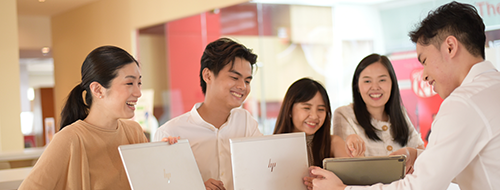Having offered our tasty products with proper nutrition value that are safe and fit for the lifestyle of people nowadays that requires convenience, Nestlé has been working hard towards the challenges to enhance quality of life and contribute to healthier future, leading the way as a model manufacturer who is environmentally conscious by carefully developing recyclable packaging so that we will be prompt to drive sustainability from upstream to downstream for the future generation.

Nestlé (Thai) Ltd. opened Navanakorn 7 UHT Plant at Navanakorn Industrial Estate in Pathumthani province with THB1,530 million investment to produce beverages under the MILO and BEAR BRAND brands to deliver nutrient-dense beverages with proper nutrition at hands of our customers by employing cutting-edge innovation and technology to supply the best products to our customers. We also focus on sustainability in every step of the value chain from production process to post-consumer packaging management.
Navanakorn 7 UHT Plant operates under sustainability concept from environmentally friendly production process including development of homogenizer system for MILO production where membrane technology is now replacing the conventional piston model for less energy consumption; Heat Recovery System that returns heat created from steam and hot water from the production process for reuse and utilization for lowered energy consumption; use of refrigerants that do not deplete ozone layers; and efficient management of production waste and wastewater in their own classification in order to achieve zero waste to landfill.

Nestlé is also the first manufacturer to introduce bendable paper straw in Thailand. This is another effort to reduce use of plastic from the upstream, starting from MILO UHT products. By using eco-friendly straws, we can help reduce more than 500 million plastic straws in 2021 which is aligned with Nestlé global sustainability goal to make 100% of our packaging recyclable or reusable by 2025 as a part of solutions to the environmental issues and to take care of the planet. This, as well, includes reduced use of corrugated paper for packaging by changing to new Wrap Around Carton instead of Regular Slotted Carton. In addition, we extend our sustainability initiatives to post-consumption packaging management through the “Milk BOX to Save the Planet” project as well as collection of used UHT packaging for recycling process in the right way.

Nestlé new Navanakorn 7 UHT Plant is another proof of our endeavor to be model manufacturer that encourages sustainability in the entire process while we also strive to enhance local economy through employment and workforce development to reach our goals in creating happiness and bringing good health to Thai consumers with the quality and proper-nutrition UHT beverages, and that aligns with our purpose “We unlock the power of food to enhance quality of life for everyone, today and for generations to come”







